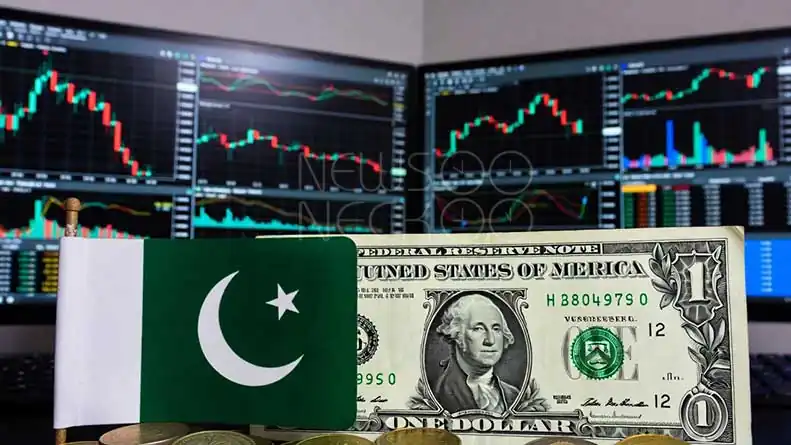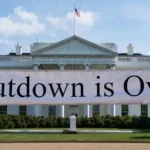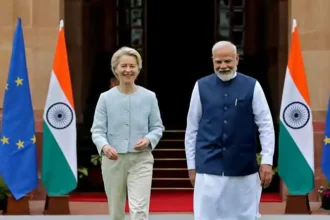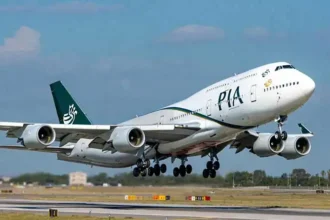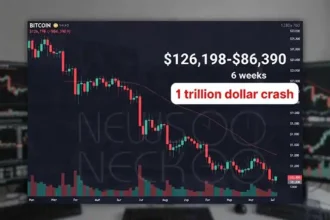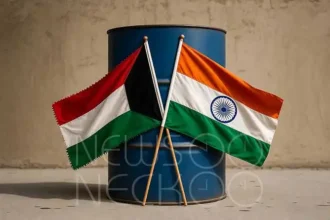Here’s What That Means for You.
The country’s central bank is cracking down on cash dollars—and ordinary people are feeling the squeeze
Imagine walking into your local bank, ready to exchange some rupees for dollars before a family trip abroad. But this time, the teller shakes their head. “Sorry,” they say. “We can’t give you cash dollars anymore.”
This isn’t a scene from some distant future. It’s happening right now in Pakistan.
On November 17, 2025, the State Bank of Pakistan—the country’s central bank—announced new rules that have turned the simple act of buying dollars into something much more complicated. And for millions of Pakistanis, these changes are raising uncomfortable questions about their savings, their travel plans, and the health of their country’s economy.
What Changed?
The new rules are straightforward but strict. If you don’t already have a foreign currency account at a bank, you can no longer walk in and buy cash dollars. Period.
Even if you do have the right kind of account, most dollar transactions now must happen electronically—moving money from one account to another, rather than handing over bills at a counter. The days of stuffing a few hundred-dollar bills into your wallet before heading to the airport are, for many people, over.
The State Bank says these measures are necessary to stop too much cash from leaving the country and to protect the value of Pakistan’s rupee, which has been under pressure for years.
You Might Like It: Sindh Launches Pakistan’s First Digital Job Portal
Why Is This Happening?
To understand why Pakistan is tightening its grip on dollars, you need to understand what’s been happening behind the scenes.
The rupee has been losing value against the dollar for a long time. When a country’s currency weakens, everything imported from abroad—fuel, medicine, machinery—becomes more expensive. That creates inflation, making life harder for ordinary families trying to put food on the table.
One reason currencies weaken is when too many dollars leave the country. Maybe people are buying foreign goods, or sending money to relatives overseas, or simply worried about the economy and trying to protect their savings by converting rupees into dollars.
Pakistani authorities have watched this outflow with growing alarm. Every dollar that leaves is one less dollar the country has to pay for essential imports or service its foreign debts. So the State Bank decided to act, putting up new barriers to slow the flood.
Who Gets Hurt?
On paper, these rules might seem like smart economic policy. But policies are implemented by people, and they affect people.
Consider the student who dreams of studying in America or England. She needs dollars to pay her university fees, her rent, her living expenses. Before, her family could go to the bank, change their rupees, and send her what she needed. Now? The process is more complicated, more restricted, and involves more paperwork.
Or think about the businessman who travels frequently for work. He’s used to picking up a few hundred dollars before each trip to cover taxis, meals, and tips. That convenience has evaporated.
Even families planning weddings face new hurdles. In Pakistan’s big cities, it’s common for families to give gifts of foreign currency at weddings, seen as more stable than rupees. Those traditions now bump up against banking regulations.
The Bigger Picture
These restrictions are part of a pattern playing out across countries where dollars are scarce and currencies are struggling. Sri Lanka implemented similar measures during its recent economic crisis. So did Egypt. When governments feel their foreign reserves running low, they reach for controls.
But such measures come with a cost. They can push people toward informal currency dealers operating outside the banking system—the so-called black market—where rates are often worse and risks are higher. They can discourage foreign investors who worry about not being able to get their money out of the country. And they can create a sense among ordinary citizens that something is seriously wrong with the economy.
The State Bank of Pakistan insists these are temporary steps to stabilize the situation, not permanent features of Pakistan’s financial landscape. But temporary measures have a way of becoming permanent when underlying problems remain unsolved.
What Comes Next?
For now, Pakistanis are adjusting. Those who can are opening foreign currency accounts. Others are planning their travel and expenses more carefully. Some are simply hoping the rules will relax soon.
The real question is whether these restrictions will work. Will they actually protect the rupee and stop the hemorrhaging of foreign reserves? Or will they simply redirect the problem elsewhere, creating new difficulties while failing to address the fundamental reasons why so many people want to convert their rupees into dollars in the first place?
The answer won’t come quickly. Economic policies play out over months and years, not days and weeks. But for the person standing at that bank counter, unable to get the cash dollars they need, the impact is immediate and personal.
That’s the thing about economic policy. It’s written in boardrooms and government offices, debated by officials in suits, expressed in the language of monetary policy and foreign reserves. But it’s lived by regular people, one transaction at a time.
And right now, in Pakistan, those transactions just got a lot more complicated.


